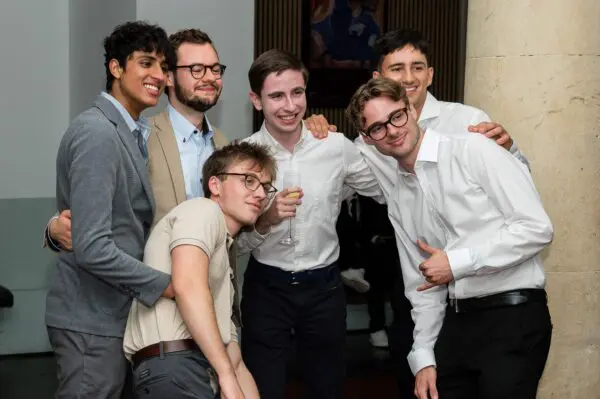
Utrecht, Netherlands
Law and Economics
When:
20 July - 31 July 2026
Credits:
3 EC
Read more
Law
When:
29 June - 12 July 2022
School:
UCPH International Summer programme
Institution:
University of Copenhagen
City:
Country:
Language:
English
Credits:
7.5 EC
Fee:
7500 DKK

Migration and advances in technology have increased the level of cultural exchange and intermingling, but they have also fostered cultural clashes and incompatibilities that were previously masked by distance. Can cultural rights become a global discourse for supporting inclusive social and political development, and for fostering intercultural dialogue for the mutual understanding of cultures? And can cultural rights become a prime mover by providing a much-needed cultural legitimacy for human rights?
Cultural rights have traditionally been underappreciated. There is support for these rights in the International Bill of Human Rights. The UDHR contains two articles of relevance – Article 26 on the right to education and Article 27 on the right to participate in cultural life and in scientific progress. The same is true for the International Covenant on Economic, Social, and Cultural Rights (ICESCR) which mentions the right to education in Article 13, and cultural participation, the right to benefit from scientific progress and artists’ rights in Article 15. The International Covenant on Civil and Political Rights (ICCPR) recognizes the right of minorities to enjoy their own culture and to use their own language in Article 27. UNESCO has produced both soft law within several distinct areas of cultural rights and policy – the right to education, linguistic rights, traditional culture and folklore, and cultural diversity – and binding treaties relevant to the area of cultural rights such as the UN Declaration on the Rights of Indigenous Peoples (2007) and to the protection of cultural heritage, both material and immaterial.
This course will take a multidisciplinary approach to cultural rights, exposing students to fields outside their respective core disciplines of study and will use the multinational nature of the students attending to focus on the national versus the global perspective.
Among the topics focused on in the course are copyright and patents; speech and culture, including religion; and the relationship between global, national and local law.
The course is offered as a part of the initiative IARU Courses.
Helle Porsdam
Master
Students should develop general skills in:
• Applying relevant theories, methods and tools (legal as well as non-legal) to current problems in the study of cultural rights;
• Identifying, analyzing and understanding the potential of and the challenges that threaten cultural rights;
• Negotiating between the universal and the relative, as well as between the individual and the collective;
• Contributing to the new and developing field of cultural rights;
• Using law in an interdisciplinary and international context.
Fee
7500 DKK, EU/EAA citizens Exchange students enrolled at the Faculty of Law do not pay tuition fee. If you are a student from an IARU university with a exchange agreement with the University of Copenhagen (UTokyo) you do not pay tuition fee.
Fee
9375 DKK, Non-EU/EAA citizens Exchange students enrolled at the Faculty of Law do not pay tuition fee. If you are a student from an IARU university with a exchange agreement with the University of Copenhagen (UTokyo) you do not pay tuition fee.
When:
29 June - 12 July 2022
School:
UCPH International Summer programme
Institution:
University of Copenhagen
Language:
English
Credits:
7.5 EC

Utrecht, Netherlands
When:
20 July - 31 July 2026
Credits:
3 EC
Read more

Oxford, United Kingdom
When:
29 June - 17 July 2026
Credits:
7.5 EC
Read more

Tilburg, Netherlands
When:
12 January - 23 January 2026
Credits:
6 EC
Read more